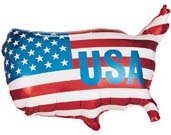The "real" US left: between ostracism and irrelevance
 Los Angeles - The electoral world in the United States is ruled by two parties, the centre-right Republicans and the centre- left Democrats, which for most of the world present an eminently conservative panorama.
Los Angeles - The electoral world in the United States is ruled by two parties, the centre-right Republicans and the centre- left Democrats, which for most of the world present an eminently conservative panorama.
Yet far from the glamour of the prime-time televised debates, there are options, including what many on the planet would consider the "real" left.
Although a marginal force, it lobs regular criticism against the two-party system and is actually fielding its own presidential candidates for the November 4 elections.
Parties like the Communist Party USA and the Socialist Equality Party coexist with the political giants. Both are markedly liberal, having found refuge in the multiracial surroundings of New York. They complain that neither Barack Obama, the Democratic nominee, nor the Republican John McCain represents true liberal values in the United States.
Bill Van Auken, the vice president of the Socialist Equality Party which has Trotskyist leanings, told Deutsche Presse-Agentur dpa that ironically, the ongoing financial crisis has put socialism smack back into the center of the world's largest economy as a lead protagonist.
"Seventeen years after the fall of the Soviet Union, everyone thought socialism was dead, but now all newspapers around the world have it on the front page. They are nationalizing banks and although right-wing politicians say this is socialism, it is not," he stressed.
Van Auken says that US voters have been subjected to a steady century-long campaign to demonize socialism and Marxism, to the point that "people are scared that they might be the solution."
The Socialist Equality Party is currently immersed in the campaign with its presidential candidate Jerry White.
"The positions on the economy of Obama and McCain are identical. You see differences on cultural issues, but depending on where you want to have the war (in Iraq or Afghanistan) you should vote for one or the other," Van Auken said of Obama's plan to reinforce troops in Afghanistan and McCain's promise to win the war in Iraq.
Socialists have many points in common with the best-known of the so-called leftist parties in the United States, the Green Party. In 2000, the Greens fielded as their presidential candidate, lawyer and activist Ralph Nader, who obtained 2.7 per cent of the vote and was blamed by some analysts for Democrat Al Gore's defeat at the hands of Republican George W Bush.
After Nader left the party, the Greens returned to their involuntary ostracism despite being the only party that has a woman as candidate for the presidency, the African American Cynthia McKinney.
Green Party spokesman Scott McLarky thinks it is possible for a leftist candidate to strive for the White House again.
"But right now it is very difficult because there are many legal obstacles and even presidential debates are controlled by a panel that belongs to the two main parties," he explained.
"The Green Party is leftist and it is the only alternative that defends the constitution. I could not say the number of times that George W Bush has violated it with the direct or indirect support of the Democrats," McLarky noted.
The last leftist leader who had a true profile on the US political scene was Eugene V Debs, a trade-union leader who took part in several presidential races in the early 20th Century. In 1912 he obtained close to 6 per cent of the vote, which remains the record for a socialist candidate in the United States.
"We do not have a left like that of Andres Manuel Lopez Obrador in Mexico or Evo Morales in Bolivia or (Hugo) Chavez in Venezuela," admitted Unai Montes-Irueste, a Democratic activist in California.
"In the United States the idea of the left and the right is much more complex than in Europe, based on the fact that we have a centrist political tradition," said Thomas Hollihan, Professor of Communication at the University of Southern California (USC).
According to Hollihan, an expert in presidential debates, "many believe that Obama is more in the extreme left than he actually is, but the truth is that he is a moderate liberal."
For members of the minority parties on the "real" left of the US political spectrum, this is just not enough. (dpa)